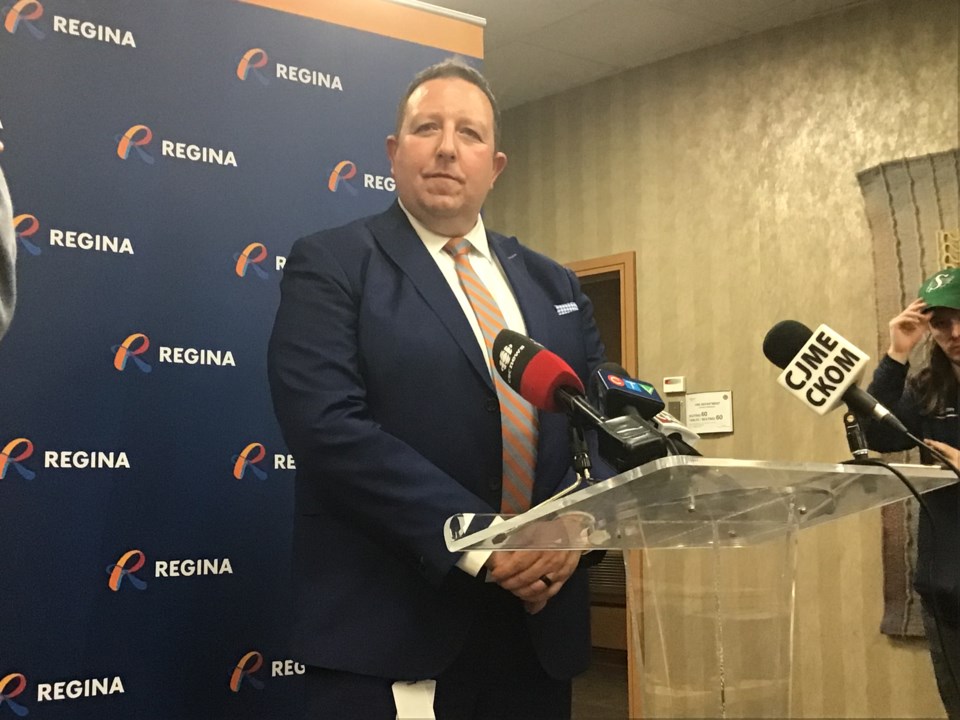REGINA - Once again, the financial woes of Regina Exhibition Association Ltd. were back at City Hall, this time at their main council meeting this week.
A week earlier, Executive Committee had approved a recommendation for REAL to acquire $3.4 million of debt within its already approved debt guarantee of $21 million, in order to manage its cash flow the rest of the year.
That recommendation was back at council Wednesday, where council formally approved that committee report by a 9-2 vote.
That vote authorizes REAL to initiate the process to obtain the additional $3.4 million in debt, as well as instructing administration to bring back a future report on details of financing and also have administration return with a strategy to address REAL’s long-term sustainability, as part of council’s consideration of the 2024 budget.
REAL had sought the additional debt to alleviate pressure the organization was facing to keep its operations going, facing a $6.9 million shortfall by September.
During their presentation, REAL leadership including CEO Tim Reid and their board chair Wayne Morsky faced plenty of questions from council members about the situation.
Among the challenges facing REAL is the loss of $2.6 million in annual funding from the province from a casino grant that expires in 2027. That grant was provided to REAL by the province as part of the deal creating Casino Regina. That deal reinvested the assets of REAL’s old Buffalo Buck Casino into the new casino. The annual grant was to last for 30 years.
Reid made clear to council they needed to figure out how to fill that potential hole.
“I think we have to resolve that $2.6 million,” said Reid. Even if they find themselves in a position of economic sustainability, when that falls away in 2027 we’re going to find ourselves in a deficit.
Another concern raised was about the organization’s ability to attract big events. Reid made it known that their previous model to attract revenue - of attracting one major event and one concert — was not something they could count on in the future.
In his presentation to council Reid noted they compete extremely well, but made clear that after COVID-19 “everybody was being more competitive in securing those events,” and that “frankly we’re just not big enough to compete in those scenarios.”
He later told reporters their business model “fundamentally changed” coming out of COVID-19, where the model on their high-margin end of the business was not what it used to be.
The other issue that emerged in the meeting was one of deferred maintenance -- how REAL needed to find a way to generate enough money to reinvest back into maintaining their assets.
One of those who did not hold back in her remarks was Councillor Lori Bresciani who noted she was “elected in 2016 and we’re still talking about the same problems that we had in 2016.”
“City taxpayers are tired of having to bail this organization out,” she said.
Councillor Bob Hawkins later disputed this characterization, saying this was not “bailing anything out.” Instead, he pointed to the issue of deferred maintenance costs and said ultimately a strategy had to be developed to deal with that.
“It’s helpful to think of the terms as normal planning, not a bailout in some way,” Hawkins said of the resolution before council.
In the end, Bresciani did cast one of the nine votes in favor. Not on board were councillors Shanon Zachidniak and Terina Nelson, who cast the two no votes.
Zachidniak in particular expressed concerns about the need for more information. Nelson, meanwhile, had expressed frustration during her questions on why REAL was being allowed to operate in deficit for ten years, “while we ourselves (referring to City Hall) aren’t allowed to go into a deficit, and we’re giving REAL money,” she said.
In speaking to reporters afterwards, Reid said he welcomed the ability to address the issue of long term sustainability of the organization.
“I think the ability that we have to talk about the long-term sustainability has been something that I’ve been talking about it since I got here. And I was appreciative of the recognition of council that things have to change. We have to find a better way forward. Obviously, COVID(-19) has compounded that challenge, but I think not only the short term strategy, but the long-term strategy will be helpful, not only to REAL but also the city in general.”
Reid said he understood the frustrations expressed from council members.
“I don’t blame them. I’m frustrated,” he said.
“There’s nobody that likes coming in saying ‘hey, we lost money last year.’ It’s not what we’ve done as REAL. In fact, if you look at our track record prior to COVID-19, we never had this discussion. But prior to COVID-19, we also brought forward a discussion with council that said we’re not maintaining the assets the way that we should. We’re not generating enough profit from operations to reinvest. And so we need a long-term solution. I don’t blame their frustration. In fact, I’m equally as frustrated.”
As for the way forward for REAL, Reid said you would see them “focus on our core business, perhaps more so than we have in the last couple of years, and I think fundamentally we just get back to the business of sports and entertainment and recreation.”






